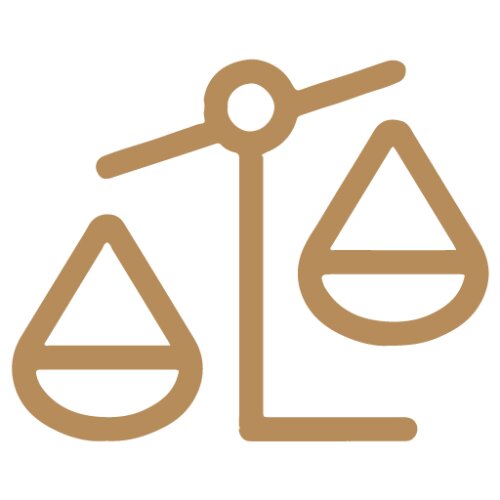Best Bankruptcy & Debt Lawyers in George
Share your needs with us, get contacted by law firms.
Free. Takes 2 min.
List of the best lawyers in George, South Africa
South Africa Bankruptcy & Debt Legal Articles
Browse our 1 legal article about Bankruptcy & Debt in South Africa written by expert lawyers.
- Debt Collectors in South Africa: Harassment and Verification
- You can demand proof of the debt, the collector’s authority, and a full breakdown before you pay. Do not acknowledge the debt or make part-payments until you verify it. Harassment is illegal. You may set contact times, request written-only communication, and lodge complaints with the Council for Debt Collectors or... Read more →
About Bankruptcy & Debt Law in George, South Africa:
Bankruptcy & Debt law in George, South Africa, is a legal system that governs the process through which individuals or businesses can seek relief from overwhelming debts. It provides a framework for restructuring or eliminating debts through bankruptcy proceedings.
Why You May Need a Lawyer:
There are several situations in which you may need a lawyer specializing in Bankruptcy & Debt law in George, South Africa, including:
- Facing foreclosure on your home or repossession of assets
- Dealing with creditor harassment or legal action
- Struggling to manage overwhelming debt and looking for debt relief options
- Needing assistance with bankruptcy filing and navigating the legal process
Local Laws Overview:
The key aspects of local laws relevant to Bankruptcy & Debt in George, South Africa, include the Insolvency Act of 1936 and the National Credit Act of 2005. These laws outline the procedures for bankruptcy filing, debt restructuring, and creditor rights.
Frequently Asked Questions:
1. What is bankruptcy?
Bankruptcy is a legal process that allows individuals or businesses to seek relief from overwhelming debts by either restructuring or discharging them.
2. How does bankruptcy affect my credit score?
Bankruptcy can have a negative impact on your credit score, but it is possible to rebuild your credit over time with responsible financial behavior.
3. What are the different types of bankruptcy?
Common types of bankruptcy include Chapter 7 (liquidation), Chapter 13 (reorganization), and Chapter 11 (reorganization for businesses).
4. Can I keep my assets in bankruptcy?
It depends on the type of bankruptcy you file and the exemptions available in George, South Africa. A lawyer can help you understand your options.
5. How long does bankruptcy stay on my credit report?
Bankruptcy typically stays on your credit report for seven to ten years, depending on the type of bankruptcy filed.
6. Can creditors still contact me after filing for bankruptcy?
Once you file for bankruptcy, an automatic stay goes into effect, prohibiting creditors from contacting you for debt collection purposes.
7. What is the role of a bankruptcy trustee?
A bankruptcy trustee is appointed to oversee your bankruptcy case, review your financial documents, and distribute assets to creditors if necessary.
8. Are there alternatives to bankruptcy?
Yes, there are alternatives to bankruptcy, such as debt consolidation, debt settlement, or working with a credit counseling agency.
9. Can I file for bankruptcy without a lawyer?
While it is possible to file for bankruptcy without a lawyer, it is highly recommended to seek legal advice to navigate the complex legal process effectively.
10. How can a lawyer help me with bankruptcy and debt issues?
A lawyer specializing in Bankruptcy & Debt law can provide expert guidance on your legal rights, help you explore debt relief options, represent you in court proceedings, and ensure your best interests are protected throughout the process.
Additional Resources:
- National Credit Regulator (NCR) - www.ncr.org.za
- Insolvency Practitioners Association of South Africa (IPASA) - www.ipasa.co.za
- Legal Aid South Africa - www.legal-aid.co.za
Next Steps:
If you are facing overwhelming debt or considering bankruptcy in George, South Africa, it is essential to seek legal advice from a qualified Bankruptcy & Debt lawyer. They can assess your financial situation, guide you on the best course of action, and represent your interests in legal proceedings. Contact a local law firm specializing in Bankruptcy & Debt law to schedule a consultation and get the help you need to navigate these challenging circumstances.
Lawzana helps you find the best lawyers and law firms in George through a curated and pre-screened list of qualified legal professionals. Our platform offers rankings and detailed profiles of attorneys and law firms, allowing you to compare based on practice areas, including Bankruptcy & Debt, experience, and client feedback.
Each profile includes a description of the firm's areas of practice, client reviews, team members and partners, year of establishment, spoken languages, office locations, contact information, social media presence, and any published articles or resources. Most firms on our platform speak English and are experienced in both local and international legal matters.
Get a quote from top-rated law firms in George, South Africa — quickly, securely, and without unnecessary hassle.
Disclaimer:
The information provided on this page is for general informational purposes only and does not constitute legal advice. While we strive to ensure the accuracy and relevance of the content, legal information may change over time, and interpretations of the law can vary. You should always consult with a qualified legal professional for advice specific to your situation.
We disclaim all liability for actions taken or not taken based on the content of this page. If you believe any information is incorrect or outdated, please contact us, and we will review and update it where appropriate.
Browse bankruptcy & debt law firms by service in George, South Africa
George, South Africa Attorneys in related practice areas.









